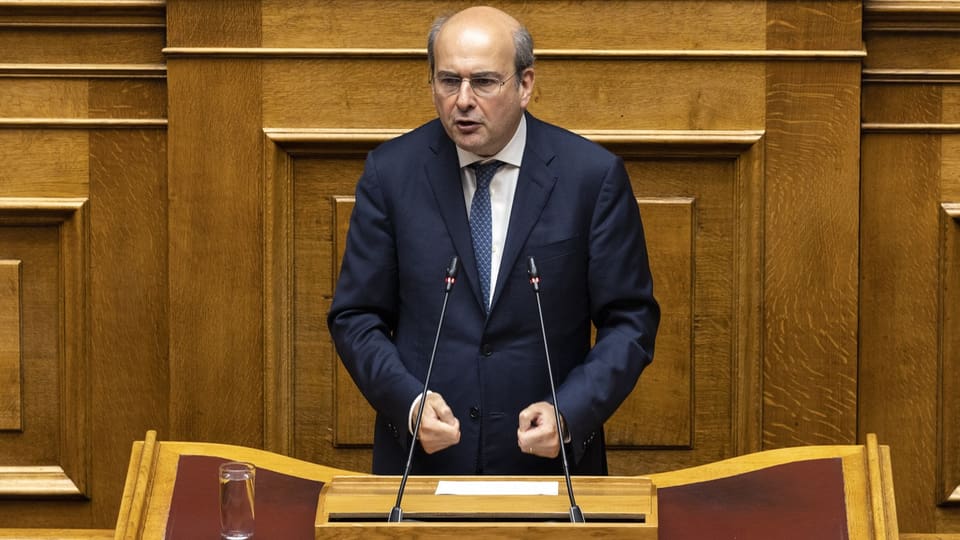Contents
Ten years ago Greece was literally bankrupt. And now? Opinions vary widely on this.
Ten years ago, Greece was literally bankrupt: unemployment was at 27 percent, the EU institutions and the International Monetary Fund frantically put together rescue packages and imposed harsh austerity conditions on Greece.
Finance Minister Kostis Hatzidakis is satisfied. Greece under the New Democracy government is a success story. «A success story compared to the populist era of Syriza under Alexis Tsipras and Finance Minister Yannis Varoufakis. Thanks to a politics of reason.”
Is Greece bankrupt or not?
The deficit is lower, unemployment has been more than halved, investments have doubled since 2019 and pensions, which have been frozen for 13 years, will be raised again for the first time this year. “We have the second-largest growth in the EU,” says Hatzidakis.
Then why did the rating agencies rate Greece better? Is there an international conspiracy for Greece?
But you can also see the situation completely differently. Greece is more bankrupt than ever, says the man with the deep voice, former finance minister Yannis Varoufakis. The national debt is higher than ten years ago, but the gross domestic product is lower, inflation is higher and net income is lower.
Legend:
How Greece is doing is a question of point of view. The country is doing better, but the people are not, even if the worst phase seems to be over.
Keystone/Petros Giannakouris
With the billions in loans and rescue packages, Greece only paid off its debts to the large international banks and thus saved them, but did not help the people.
Hatzidakis counters. “Then why did the rating agencies rate Greece better? Is there an international conspiracy for Greece?” mocks the man with the rimless glasses.
People are not doing well yet
In fact, national debt is higher than it was ten years ago and the gross domestic product is 16 percent lower than in 2009, says economist Frangsikos Kotendakis, until recently head of parliament’s non-partisan budget department. But there is a recovery, albeit from a low level.
The country can breathe again. In 2009 the country spent 6 percent of gross domestic product on interest, now only 2.4 percent.

Legend:
Greece under the New Democracy government is a success story, says Finance Minister Kostis Hatzidakis.
Keystone/Yorgos Karahalis
People are not doing well yet; Keywords are high inflation, low wages and the mortgage crisis, but the prevailing feeling is that “the worst is behind us”.
What does the former paymaster of Europe, the former German Finance Minister Wolfgang Schäuble, say? “You’re always wiser later.” This refers to the Greek privatizations under pressure from the EU and the International Monetary Fund, which should have brought in 50 billion within 5 years, but only achieved a fifth in twice the time span. And China in particular has benefited from the most spectacular privatization, the leasing of the port of Piraeus.
A question of point of view
Schäuble sticks to the idea that a temporary exit from the euro would have mitigated the consequences for the Greeks. Chancellor Merkel also initially thought so. A theory that all other interviewees vehemently reject: You can’t just get out of a currency for a short time and then get back in again.
What everyone agrees on is that the austerity dictate was initially too harsh and hit the population very hard. How Greece is doing is a question of point of view. The country is doing better, but the people are not, even if the worst phase seems to be over.
